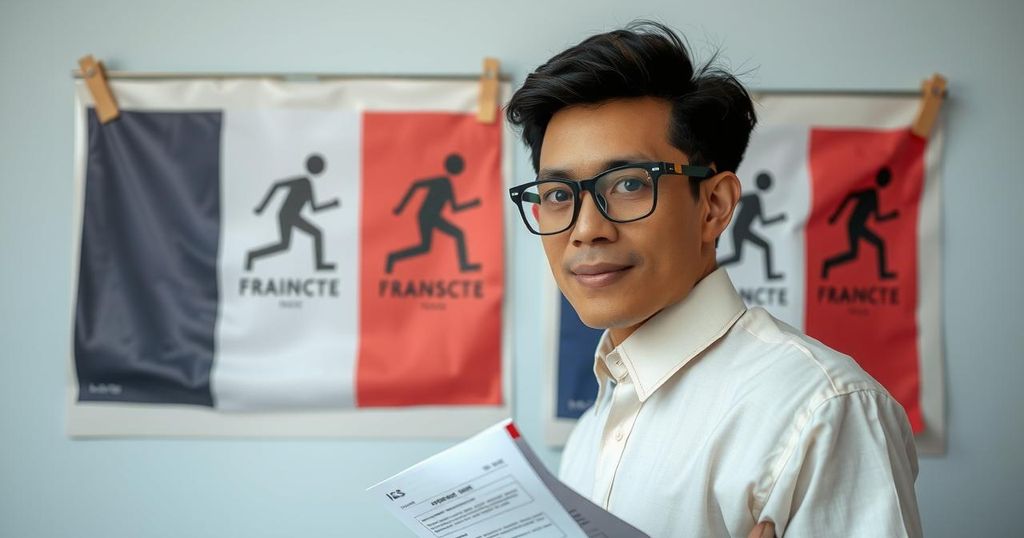France has requested Indonesia to transfer Serge Atlaoui, a French inmate on death row for drug charges since 2005. Indonesian authorities confirmed the request is under review, with discussions scheduled for early January. Atlaoui claims innocence, asserting that he believed he was working in an acrylics factory when arrested. This request occurs amidst ongoing negotiations for other high-profile prisoner transfers, yet Indonesia may resume executions soon, highlighting the complex nature of international legal negotiations regarding capital cases.
France has formally requested the extradition of Serge Atlaoui, a French citizen currently on death row in Indonesia since 2005 due to drug-related charges. The Indonesian Law and Human Rights Minister, Yusril Ihza Mahendra, confirmed to AFP that the request had been received and would be discussed in early January following the holiday season. Mr. Atlaoui, aged 61, was apprehended in connection with a narcotics production facility near Jakarta, where authorities labeled him a ‘chemist.’ Initially sentenced to life imprisonment, his penalty was later escalated to death by the Supreme Court in 2007.
Indonesia is recognized for its severe stance on drug offenses, including the application of the death penalty for traffickers, a policy that has led to the execution of foreign nationals in previous cases. Recently, the Indonesian government has facilitated the transfer of several high-profile foreign detainees on death row, including individuals from the Philippines and the notorious ‘Bali Nine’ drug trafficking group. However, there are indications that executions of drug convicts may soon resume, having been suspended since 2016. This context places heightened scrutiny on the fate of Mr. Atlaoui as negotiations for his transfer continue.
The request for Serge Atlaoui’s transfer ties into broader discussions surrounding Indonesia’s stringent drug laws and the international implications of its death penalty policies. Indonesia’s approach to narcotics has led to a hardline reputation, particularly noted for its application of capital punishment to foreign nationals involved in drug trafficking. The situation is further complicated by ongoing dialogues about prisoner exchanges and Indonesia’s recent signal to resume executions, which remain a contentious topic both domestically and internationally. Atlaoui’s case has garnered attention not only due to the severity of his sentencing but also because of his claims of innocence, which add a layer of complexity to the discussions surrounding his potential transfer.
In conclusion, France’s formal request for the transfer of Serge Atlaoui underscores the ongoing tensions between national legal frameworks and international diplomatic relations concerning capital punishment. As Indonesia contemplates the request amidst its strict drug laws and recent indications of resuming executions, the outcome remains uncertain. The discussions set for January will be pivotal in determining Mr. Atlaoui’s future as well as the broader implications for foreign nationals facing death sentences in Indonesia.
Original Source: www.hindustantimes.com






